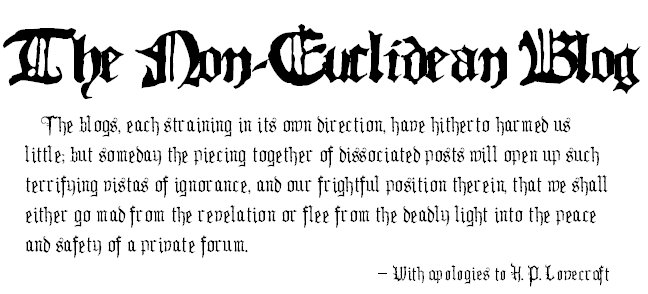This ratio purports to predict any given customer's attitude relative to the service he expects from you, whether you work as a Starbucks barrista or a high-level investment advisor. Careful application of this ratio will allow you to tailor your approach to your customer. Not that it'll keep you out of trouble, but at least you'll know why you're in it.
Begin by covertly checking the size of your customer's wallet. (Note: It is not recommended that you actually handle your customer's physical wallet, as he or she is not likely to understand the scientific motives which drive your actions.) This will allow you to predict how far backward your customer will expect you bend.
The larger your customer's wallet, the greater the sense of entitlement he or she is likely to possess. After all, they've either worked hard within society's rules, or else they're darn good at manipulating the rules to their benefit. Either way, they know how to make the machine work, and they expect you (as a part of that machine) to work to their greatest advantage. Woe betide the lowly cog whose subversive grinding brings the machine to a halt!
Conversely, the smaller your customer's wallet, the lower the sense of entitlement he or she is likely to possess. Whether by birth or circumstance, this person is less skilled at operating the machinery to personal benefit (or, perhaps, has priorities at cross-purposes to making it all work out for Number One). Therefore, the smaller-walleted are less expectant that you're going to work all night to keep them happy. The rest of the machine doesn't, so why should you?
However, an intriguing phenomenon happens as the size of the wallet shrinks. At a certain point, expectations actually begin to rise in inverse proportion to the size of the wallet! The thinness of your customer's wallet begins to bother her. The system works so poorly for her that she begins to suspect the machine was unfairly built to crush her ambitions. And the smaller that wallet gets, the more convinced your customer becomes that the machine is to blame. Now, as a part of that cruel and unjust machine, you exist to be circumvented and subverted so your customer can secure what the system has unfairly denied her. Eventually, thievery and all manner of ill-doing is justified because your customer feels the system owes her; in other words, she now feels just as entitled to everything you've got as the guy with the fat wallet.
On the one hand, you've got the filthy rich who are stunned you don't exist to fulfill their wildest dreams; and on the other hand, you've got the desperately poor who are convinced part of your pie rightfully belongs to them anyway. And in the middle are the nice customers, the ones who aren't that poor or that rich, and consequently don't feel the world owes them a living.*
Observe this mathematical fact, graphed so scientifically that it must be true:

Observing this simple mathematical ratio will allow you to stay on your toes when you deal with your customers. In short, I have provided the definitive mathematical proof for Proverbs 30:8-9:
Keep falsehood and lies far from me; give me neither poverty nor riches, but give me only my daily bread. Otherwise, I may have too much and disown you and say, ‘Who is the LORD?’ Or I may become poor and steal, and so dishonor the name of my God.
_______
*Of course, there are always the rich and the poor who are actually pleasant to deal with, and the middlers who are real pains. In scientific circles, we call these people "outliers," which is a term for a collection of data points which don't fit our theory so we'll stick them a box and shove it in a forgotten corner of the dustiest warehouse where they can be safely ignored.
